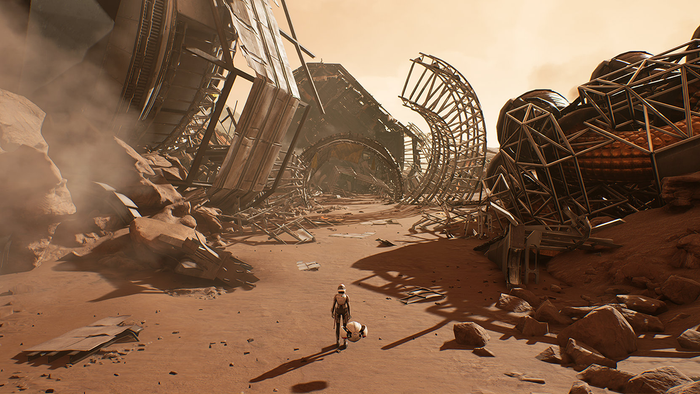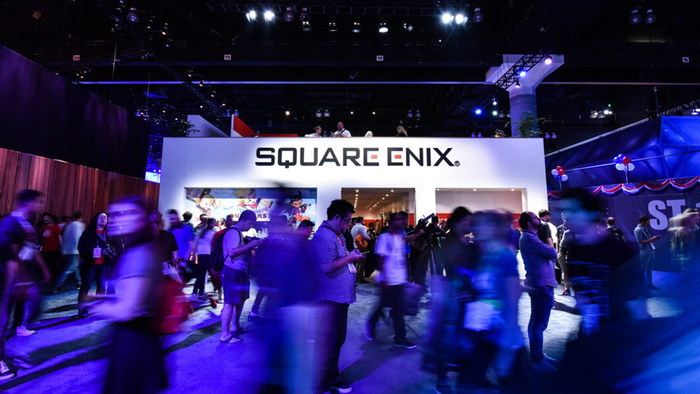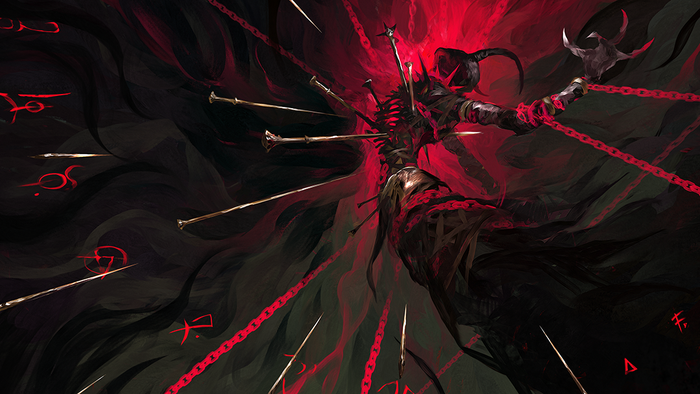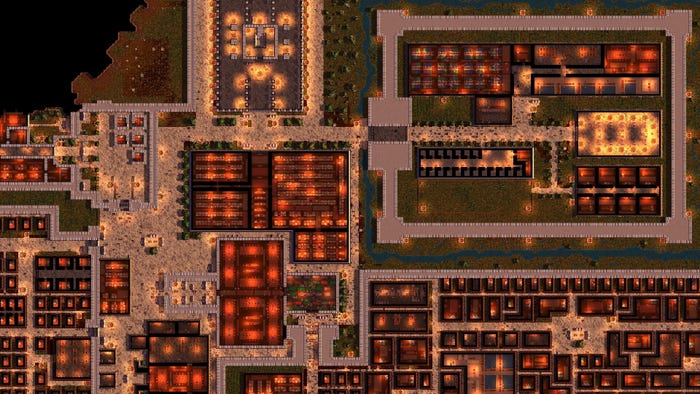
Featured Blog | This community-written post highlights the best of what the game industry has to offer. Read more like it on the Game Developer Blogs.
(De)motivating players with “social pressure conditioning”
On how your game (and community) comments on mechanic can sometimes be more important than what the mechanic really does. (Shown on example from Hawken, cross-inspired by two articles on gamasutra)

(This article was mirrored/cross-posted from my medium.com blog, to which I occasionally write stuff of varying quality and substance.)
At this very moment (literally), three lines of thinking converged. One of them is an experience I had yesterday while playing Hawken, the other two are gamasutra articles I read just now.
I am pretty tired, so I:
a) will try to keep it relatively short
b) apologize for any weird sentences or grammar errors.
First of the articles was How Game Mechanics Condition Us by Josh Brycer, which provides a nice straightforward explanation of the two basic types of player conditioning/feedback — positive and negative, of course; positive being a reward for action we want to encourage, negative being a punishment for an action/situation we want the player to avoid. Nothing revolutionary so far, just a nice writeup summing it up.
Second article was Trick-or-treat your bug by Flaviu Vescan, where he describes a certain… bug/exploit/design feature of their game, and how they handled players complaining about it. Players thought the exploit made the game easy, and finding it resulted in dwindling interest/enjoyment/engagement and return rates.
They handled the problem by adding a reward for finding the bug/exploit/design feature. And, funnily, it worked.
This is the point where the three thought lines cross — I would argue that what they had done is, basically, social pressure conditioning.
(I am not sure if that term already exists — if yes, I'm 95% positive it means, or at least should mean, what I am going to describe. If it doesn't exist yet, I claim the founding and ownership of the term, thank you very much :-D)
Explaining how and why is where my Hawken experience from yesterday comes in.
Sometimes, Hawken matchmaking throws you into a game where everyone else is very obviously and significantly above your skill level, not just according to MMR, but in a tangible way which you can feel the whole time through the match, in utter insufficiency of your duel tactics, aiming, ability usage, your ability to keep up with the team and be a working part of it, and… in other players' knowledge about, and general approach to the game.
Those matches are usually pretty ego-destroying, but very eye-opening and dense with lessons, whether practical, or gotten via advice from others.
I was on my “especially bad aiming day”, so after a while I've given up trying to not suck with Berserker class mech and switched to Rocketeer.
(Next two paragraphs in italics describe roles of those two mechs for context, if you know Hawken, you can skip them.)
Berserker is very light, fast and (fr)agile, relatively high-skill, requiring good aim and twitch reflexes, intended to be the wedge of the attack, stabbing into the enemy lines, creating a space for team to fill and push through, then retreating to repair while others kill off opponents from their now-disarrayed line, making heavy use of fast maneuvering at mid to close range, trying to stay at difficult angles to the enemy, thus avoiding most of their fire. It's primary weapon is hitscan machine gun, secondary is more tactical rocket, slightly auto-guided, can be manually exploded mid-air, requiring one to think very tactically and read the opponent's moment-to-moment actions so you can plan and lead the shots correctly. This rocket has a very slight auto-guidance while in flight, but not nearly enough to compensate for bad play.
Rocketeer is on the other end of the spectrum, a large slow armored heavy, meaning it's generally second or last to the engagement, and as all heavies in general, meant to seize the space created by berserker-likes (and now pushed from by mids, i.e. assaults), and area-deny + mid-to-long range fire support, creating a “relatively safe fallback space” for when those further front need to repair and regroup. Its primary weapon is low rate of fire and low speed explosive rocket-like slug, secondary is a volley of low speed rockets. Both of those are explosive, have significant AOE (relative to other mechs), and both are heavily auto-guided. On top of it, the rocket volley can lock-on to a target. I still maintain that it's pretty well balanced, it just requires completely different avoidance/duel tactics than most other mechs, but at the same time, it requires completely different mindset when aiming. Basically, due to the combination of how slow and how heavily guided both projectiles are, thus how they arc towards target when on their way, it requires you to intentionally “miss” in just the right way to actually hit anything. If “mis-aimed” correctly, it can be very devastating. If you don't get how to aim it, it's virtually useless.
So I switched to Rocketeer, and after a while, I noticed many instances of “aimbot” in the chat. I asked who's aimbotting. They said it was me, because I was using Rocketeer. It became very clear they considered it shameful and noobish, if not outright on the verge of cheating. I was confused, and a bit taken aback. I tried to maintain and explain how and why I think it's balanced, explain what's in my opinion the correct counter-tactic to it, and just keep focused, but I failed.
I started using the lock-on much more scarcely, i.e. less often than I could and should have, I basically started subconsciously using my mech in a sub-optimal way, not making use of its full abilities and role intention. My play became worse.
I didn't want to, but the feeling of “being shamed by better players” (despite the fact I still believe the mech is balanced and designed fine, people just dislike that they have to considerably switch their tactics around when they encounter it) still caused me to… “get softer on them”.
(Disclaimer: Even when playing at full throttle, I was no match for them, but at least I put up a good fight before dying. Now, at half-throttle, I was just dragging my team down, while players from my own team were shaming me along with the enemy, for my mech choice).
Halfway through the game I started switching around mechs with no regard for team play, avoiding Berserker (to which I kind of specialise, usually) as I was not able to play it well that day, but having no other proper fallback choice (besides the Rocketeer) that I would be able to use and contribute at least a bit, so I went to “experiment with mechs you know little about, we lost the match anyway” mode.
I have just been conditioned by negative social feedback to avoid something the game's design itself had no problem with me doing, to avoid something the game's design itself encouraged/wanted me to do.
Now here's (FINALLY! :-D) the meeting point and the main point of this article:
I would argue that what Flaviu Vescan describes in his article was, in fact, their dev team using “social pressure conditioning”.
By making the game oficially, extrinsically recognize and acknowledge, and reward (however in a way that was mechanically neutral — new player character skin) the “bug/exploit”, they sent out a message to their players that “yes, we know it's there and it makes the game trivial to not lose, that's why it's there, so if you use it as your primary strategy, you're smart for finding it, but noob for not understanding that the goal of the game is actually in score attack from combos and such, and not from how long you manage to not lose”.
And thus, a feature that, within the game mechanics, was (and still is!) to a large degree self-rewarding, became discouraged by the perception and viewpoint of the player base. Consequently, players stopped (ab)using it.
And this, I think is at the core of “social pressure conditioning” principle. I'm not sure if the example Flaviu wrote about would be “negative social pressure conditioning”, or a positive one, or even “negative social pressure conditioning through positive (feedback)”, which I know sounds strange, but it's worth thinking about.
What I am sure about, though, is that:
a) it's a really cool solution for a “bug/design issue”
b) ultimately, what the game, what the mechanics themselves really do, is just part of the picture. Second part, at least equally significant, is what message your team, your game, and in consequence your player base sends about that specific mechanic — how does it present it.
Yes, your game has significant flanking damage bonus. But how is the achievement (or screen prompt or whatever) for using it called? Is it “cheeky little backstabby cowardly bastard”, or is it “master tactician and maneuvre sargeant”? And to the foe you dispatched in this way, does it say “this vicious imp just fucked you over”, or does it say “you got tunnel-visioned, lol, serves you well”?
It seems there might be numerous cases, where this second part, how the feature is presented and what attitude is built up towards it, purely socially, might even be more important than the real, practical effect of that mechanic.
If you've finished reading this whole thing, I want to thank you for your time, and I would be happy to read any of your thoughts in the comments.
Have a nice day :)
Read more about:
Featured BlogsAbout the Author(s)
You May Also Like








